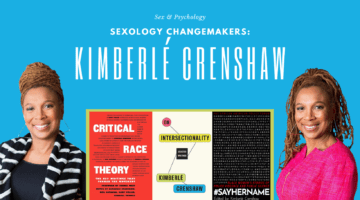Changes In Americans’ Attitudes Toward And Experiences With Infidelity In The Last Two Decades
April 9, 2018 by Justin Lehmiller
Are Americans today more or less likely to cheat on their spouses than they were in the past? And how have their attitudes toward infidelity changed—have they become more or less tolerant of this behavior? A recent study published in the Journal of Family Psychology offers some insight into these questions.
In this study, researchers from the University of Colorado Boulder analyzed nine waves of data from the U.S. General Social Survey, a nationally representative survey that is conducted most years. In total, they looked at the responses of 13,030 Americans collected between the years 2000 and 2016. Participants were asked about their attitudes toward sex outside of marriage, as well as whether they’d had extramarital sex in the last year and in their entire lifetime (note that only married participants answered the latter questions).
They found that the number of Americans who said that extramarital sex is “always wrong” declined over time, while the number who said it was “wrong only sometimes” increased. While statistically significant, these changes were rather small—we’re only talking changes in the range of 2-4 percentage points.
It’s also worth noting that, at each time period, at least 75% of respondents said that infidelity was “always wrong,” which tells us that most Americans continue to be very disapproving of sex outside of marriage. Only a small number have grown more accepting in recent years.
That said, men and people who had cheated previously were more accepting of infidelity than women and people who hadn’t cheated before; however, the vast majority of persons in all of these groups disapproved of the behavior. So, overall, Americans in general don’t appear to be cool with the idea of cheating.
As for how many people had actually cheated, the lifetime prevalence for married men was 21.4%, whereas for married women it was 13.4%. In addition, 4.1% of married men and 2.0% of married women reported cheating each year on average. This gender difference is consistent with previous research and is often interpreted through an evolutionary lens (specifically, the idea that men are likely to experience more reproductive advantages from having a large number of sexual partners than women).
The annual rate of cheating did not change over time; however, there was a slight decrease in the reported lifetime prevalence of cheating, which declined by about 1.5 percentage points over the 16 years of the study. The authors suggest that one potential explanation for this is the declining marriage rate, which may be producing a selection effect that is reducing the odds of experiencing infidelity—although if that’s the case, it’s not clear why the annual rate of cheating didn’t change significantly as well.
While these findings offer some insight into some of the changes in Americans’ attitudes toward and experiences with infidelity, keep in mind that they’re limited to the context of extramarital sex—plus, the questions didn’t specify what “sex” was, which means people may have intentionally chosen not to count certain activities (e.g., oral sex). Further, the General Social Survey doesn’t distinguish between infidelity and open marriages, so both get lumped together, which means these results might be overestimating the prevalence of infidelity.
Stay tuned for a follow-up post about this study in which we’ll consider the fascinating question of who married Americans are cheating with—is it with people they know or is it with strangers? Also, do men and women cheat with different types of partners? I’ll have the answers next time
Want to learn more about Sex and Psychology ? Click here for previous articles or follow the blog on Facebook (facebook.com/psychologyofsex), Twitter (@JustinLehmiller), or Reddit (reddit.com/r/psychologyofsex) to receive updates.
To learn more about this research, see: Labrecque, L.T., & Whisman, M.A. (2017). Attitudes toward and prevalence of extramarital sex and descriptions of extramarital partners in the 21st century. Journal of Family Psychology.
Image Source: 123RF/mukhina1
You Might Also Like:

Dr. Justin Lehmiller
Founder & Owner of Sex and PsychologyDr. Justin Lehmiller is a social psychologist and Research Fellow at The Kinsey Institute. He runs the Sex and Psychology blog and podcast and is author of the popular book Tell Me What You Want. Dr. Lehmiller is an award-winning educator, and a prolific researcher who has published more than 50 academic works.
Read full bio >


